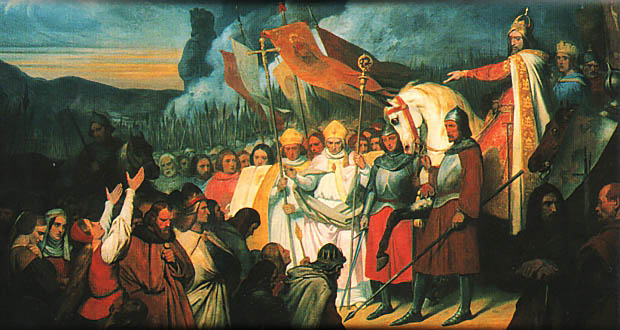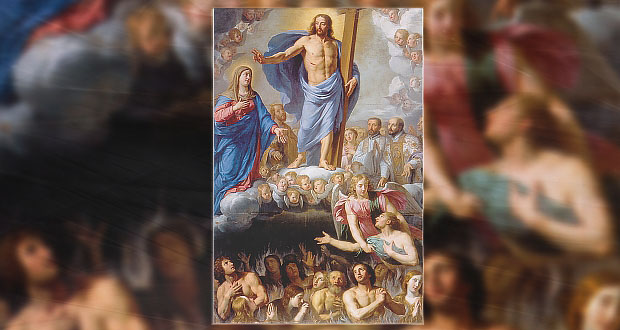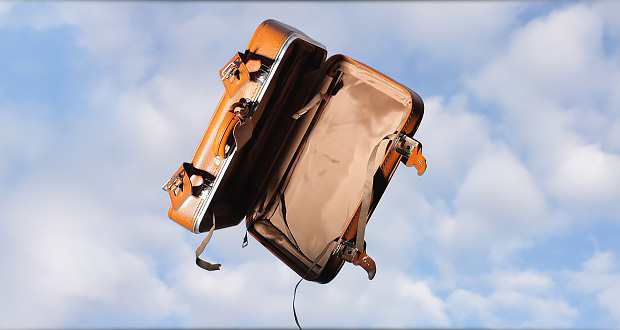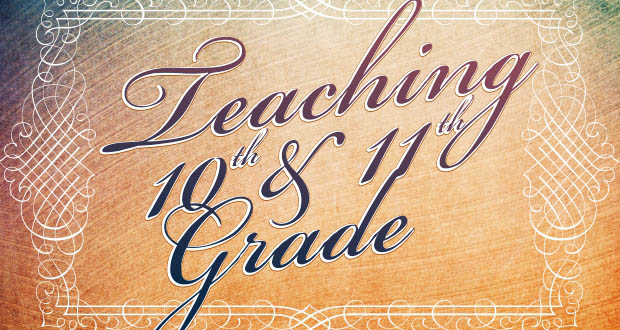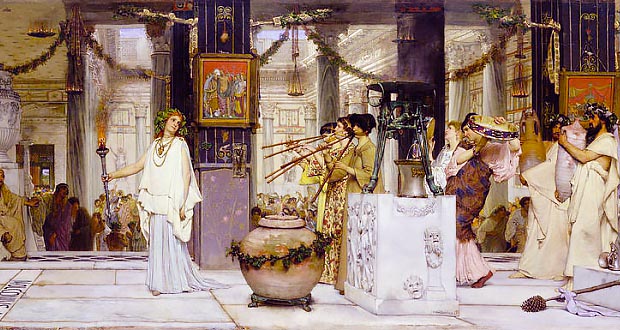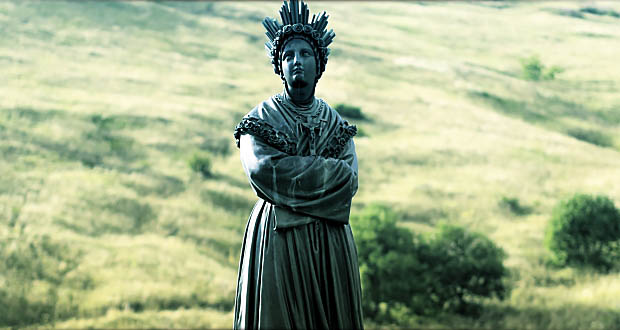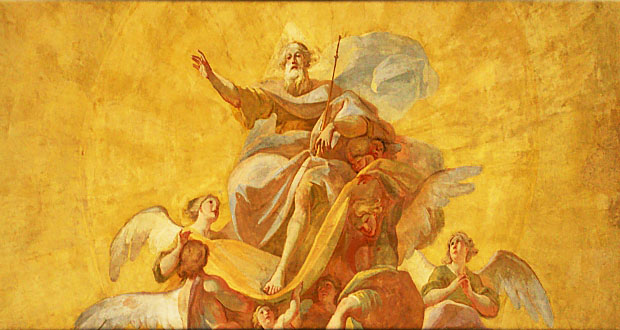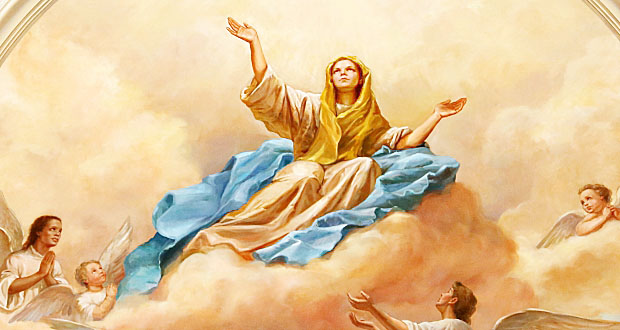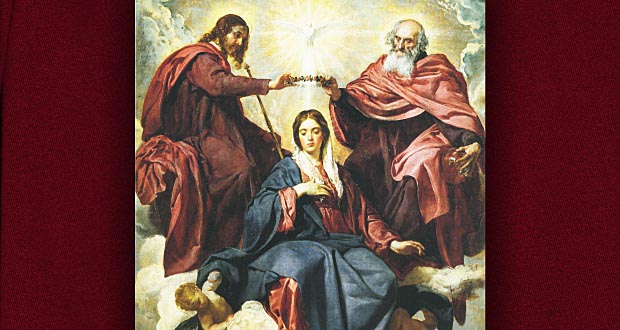Dr. Mitchell Kalpakgian
January 30, 2014
8,256 Views
How easy it is to neglect these amenities of manners that consist of attention to seemingly minor things of no consequence: a thank you note, a compliment, a visit. How convenient it is to use the excuse of busyness with important affairs to avoid attention to small details.
Read More »
Dr. Mitchell Kalpakgian
January 16, 2014
7,565 Views
Contemplation is a form of looking inspired by wonder that moves a person to continue looking at a great work of art or to remain thinking about a great idea, divine miracle, or mystery.There is so much to see or know that one lingers to see more and to think more deeply.
Read More »
Dr. Mitchell Kalpakgian
January 2, 2014
8,844 Views
Words, like music, can create harmony or discord. Words, like certain fine instruments, can refine and beautify or, like blunt tools, can break and smash. The art of living requires sensitivity to the choice of words, to the tone of voice, and to the manner of speech.
Read More »
Dr. Mitchell Kalpakgian
December 26, 2013
6,500 Views
Of course civility dictates that a person strive to make a good appearance that befits the occasion in an honest expression of who he or she is, and the person in the role of judge must take into consideration the fact that a first impression may be insufficient grounds for a correct interpretation.
Read More »
Dr. Mitchell Kalpakgian
December 12, 2013
11,563 Views
Members of a family know each other too well to be fooled by brother’s daydream to be a millionaire, sister’s fantasy to be a great actress, or grandson’s ambition to be a professional athlete. The family teaches humility, self-knowledge, the art of the possible, and the way things are.
Read More »
Contributing Writers
November 23, 2013
9,173 Views
by Dr Anne Carrol | Home schooling parents are often faced with the “I hate history” syndrome. But they can transform antipathy into enthusiasm. Everything we teach our children should have as its ultimate purpose the glory of God and the good of souls, and history is no exception. How specifically can we teach history so that it fulfills these purposes?
Read More »
Dr. Mary Kay Clark
November 18, 2013
11,350 Views
The Mystical Body of Christ, the Church, is composed of those of us still on Earth, those in Purgatory, and those in Heaven. We on Earth are encouraged by the Church to pray for those in Purgatory, and to ask those in Heaven to pray for us. Those we prayed for when they were in Purgatory will certainly pray for us when they reach Heaven.
Read More »
Dr. Mitchell Kalpakgian
October 24, 2013
23,050 Views
Two great ancient philosophers, Marcus Aurelius in Meditations and Boethius in The Consolation of Philosophy — two works renowned for their great wisdom and moral power — teach the importance of the virtue of self-possession. Both writers observe that no persons can control the outside events that surround them.
Read More »
Dr. Mitchell Kalpakgian
October 3, 2013
13,589 Views
In the story the merchant’s son who wasted his money finds himself in desperate circumstances until a friend gives him a magical flying trunk. When he flies with it and descends from the sky, he introduces himself as a Turkish god who has come from above to marry the king’s daughter. Honored with this privilege, the king gladly agrees to the marriage: “Yes, you shall certainly marry our daughter.”
Read More »
Dr. Mitchell Kalpakgian
September 26, 2013
7,084 Views
To be human is to be born with desires, to have wishes, and to experience longings. But not all wishes have the same quality, nature, or origin. Some wishes assume the shape of daydreams or fantasies as utopian visions enter the mind and people imagine impossibilities.
Read More »
Dr. Mitchell Kalpakgian
September 19, 2013
6,715 Views
Man by nature is idealistic, seeks excellence, and hopes for perfection, but he is bound by the weakness of human nature and the limits of the human condition. There is no such being as a faultless painter or a sinless human being. In the sport of baseball every player aspires to get a hit every time and bat 1.000, but even the best of batters only have an average of .300.
Read More »
Dr. Mary Kay Clark
September 16, 2013
10,662 Views
Students should accomplish a substantial amount of academic work in the 10th and 11th grades. They have over-come the adjustment problems they may have encountered in 9th, and have not ...
Read More »
Dr. Mitchell Kalpakgian
September 12, 2013
7,570 Views
According to proverbial wisdom, “When you do succeed, the chances are that you were not trying too hard in the first place.” This observation appears to contradict the idea of ...
Read More »
Dr. Mitchell Kalpakgian
September 5, 2013
9,291 Views
In Anne Morrow Lindbergh’s classic Gift from the Sea the author, using the leisure and recollection of a summer vacation at the ocean, reflects on the art of living a ...
Read More »
Dr. Mitchell Kalpakgian
August 30, 2013
8,471 Views
The ancient Greeks identified the sign of fruitfulness as proof of the art of living well, as the true mark of civilization. On the shield of Achilles in the Iliad ...
Read More »
Dr. Mary Kay Clark
August 26, 2013
12,785 Views
On September 19, the Catholic Church celebrates the apparition of the Blessed Mother when she appeared to two children in La Salette, France, in 1846. This apparition and the message are practically unknown in our country, likely because of the amazing miracles in relation to the apparitions of Fatima in Portugal and of Lourdes in France.
Read More »
Dr. Mitchell Kalpakgian
August 22, 2013
8,957 Views
To be human is to think of the future, to imagine the unknown, and to fear the unpredictable. So many things are not in the control of human beings who ...
Read More »
Dr. Mary Kay Clark
August 14, 2013
9,636 Views
The Assumption, which we celebrate on August 15, is certainly one of the happiest and most glorious feast days in the Church. The Blessed Mother is raised, body and soul, ...
Read More »
Dr. Mitchell Kalpakgian
August 8, 2013
8,303 Views
In his fairy tale “The Goblin at the Provision Dealer’s” or in some editions entitled “The Pixy at the Grocer’s,” Hans Andersen depicts the life of a goblin who enjoys ...
Read More »
Dr. Mary Kay Clark
July 29, 2013
16,825 Views
We celebrate the feast of the Blessed Mother as the Queen of Heaven on August 22. The Visitation by Mary to Elizabeth recorded in the first chapter of the Gospel of Luke, hints at or foreshadows the future Queenship of Mary.
Read More »


 Seton Magazine Catholic Homeschool Articles, Advice & Resources
Seton Magazine Catholic Homeschool Articles, Advice & Resources




